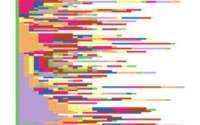
Influence of Learning Design of the Formation of Online Communities of Learning
This paper presents the findings of a study on a fully online Bachelor’s level course in Health Sciences at a European University conducted to explore the influence of learning design on the formation and evolution of different types of communities of learning. The impetus for the study came from the well-established effectiveness of community-based learning, […]














